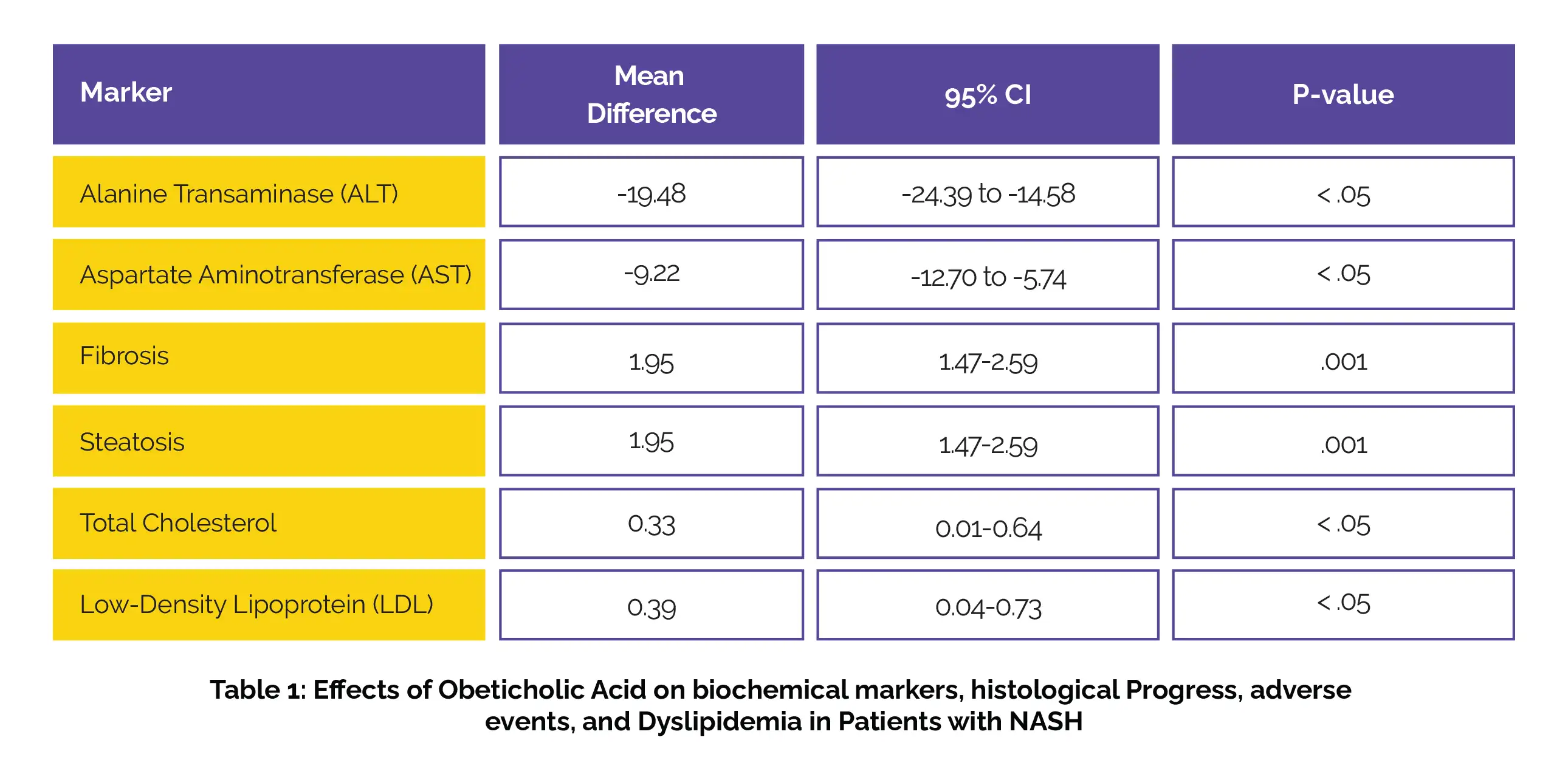Categories
Change Password!
Reset Password!


Nonalcoholic fatty liver disease (NAFLD) and its progressive form, nonalcoholic steatohepatitis (NASH) are significant contributors to chronic liver disease.
Obeticholic acid (OCA) found effective in reducing liver test markers and improving nonalcoholic steatohepatitis-related fibrosis and inflammation, but also in elevating cholesterol levels and exacerbating pruritus (itching) with higher doses.
Nonalcoholic fatty liver disease (NAFLD) and its progressive form, nonalcoholic steatohepatitis (NASH) are significant contributors to chronic liver disease. Obeticholic acid (OCA) has emerged as a promising therapeutic agent for addressing fibrosis associated with NASH given its anti-fibrotic properties. The effectiveness of OCA in treating NASH patients along with its influence on dyslipidemia has been explored in this study.
Database searching included exploring the Embase, Cochrane Library and PubMed from January 1, 2010, to November 1, 2022, for systematic reviews of randomized controlled trials (RCTs) involving patients diagnosed with NASH based on the inclusion criteria. The findings were categorized, taking into account both biochemical and histological outcomes.
Five studies were picked for analysis. Regarding biochemical markers, patients treated with OCA demonstrated notable enhancements in alanine transaminase and aspartate aminotransferase. Regarding histological progress, OCA therapy exhibited reductions in fibrosis and steatosis. No significant differences were noted concerning adverse events. Regarding dyslipidemia, considerable mean differences were observed in total cholesterol and low-density lipoprotein (Table 1):

OCA demonstrated a reduction in various liver test markers compared to the placebo. An improvement in balloon degeneration, fibrosis, steatosis (fat build-up in the liver) and lobular inflammation with OCA was also noted. This treatment was linked with increased levels of total cholesterol and low-density lipoprotein and pruritus severity with higher doses.
Medicine (Baltimore)
The effect and safety of obeticholic acid for patients with nonalcoholic steatohepatitis: A systematic review and meta-analysis of randomized controlled trials
Jie Zhao et al.
Comments (0)